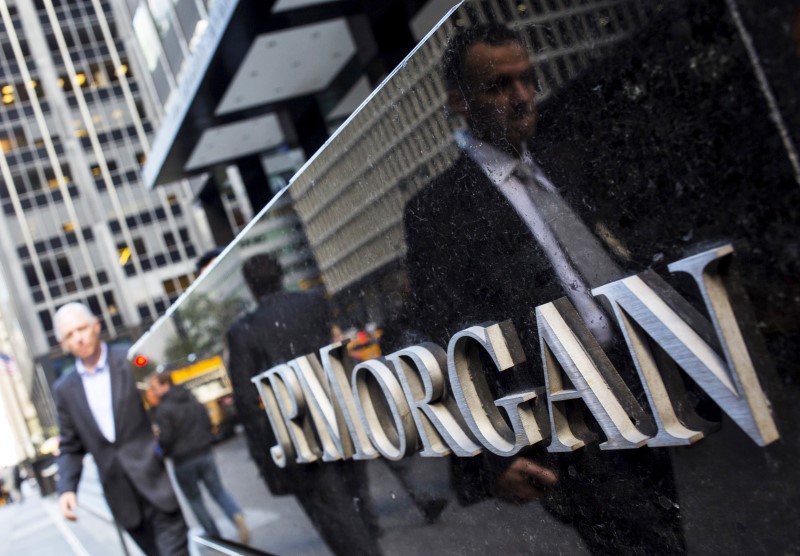By A. Ananthalakshmi, Bernardo Vizcaino and Carolyn Cohn
KUALA LUMPUR/SYDNEY/LONDON (Reuters) - U.S. investment bank JPMorgan (NYSE:JPM) will include Islamic bonds, or sukuk, in its emerging markets indices for the first time from later this year, widening the appeal of Islamic instruments among global debt investors.
JPMorgan, which runs the most widely used benchmarks of emerging market debt, will include eight sukuk across its index family starting Oct. 31.
The decision was taken after JPMorgan conducted an annual governance review it said in a research report to clients, and seen by Reuters.
Dollar-denominated sukuk from Turkey, Malaysia and Indonesia will be included in JPMorgan's flagship EMBI Global Diversified index, against which an estimated $313 billion in assets is benchmarked.
The move could help sukuk break away from their traditional buy-and-hold investor base.
"Despite having a market size of $200 billion, so far sukuk was seen as an exotic asset class mainly targeted at Islamic banks," said Okan Akin, emerging market credit analyst at AllianceBernstein in London.
The decision by JPMorgan would increase the liquidity of sukuk instruments, the lack of which has been the main negative feature of the market, Akin said.
Including sukuk into such benchmarks would attract higher bids and may support prices at higher levels, said Anita Yadav, head of fixed income research at Emirates NBD in Dubai.
"Non-traditional investors that generally hesitate to invest in sukuk may also be forced to buy should they be using JPMorgan as their performance benchmark," Yadav said.
Sukuk, which follow religious principles such as bans on interest and gambling, have their core centres in the Gulf region and Southeast Asia although the funding format has made inroads in Western markets in recent years.
TEST FOR REGULATORY REGIME
While the inclusion of sukuk will benefit the sector in the short term, the omissions of some names could also encourage regulators to address persistent weaknesses in the sector.
To be eligible sukuk must be rated, have their liquidity assessed prior to inclusion in the JPMorgan indices and meet other criteria similar to conventional bonds. At the outset, however, not all issuers might meet such requirements.
Only two corporate sukuk will be included in the JPMorgan Corporate Emerging Markets Bond Index: a 2023 sukuk from Dubai's DP World and a 2024 sukuk from the Gulf region's largest utility Saudi Electricity Co.
Pakistan's $1 billion sukuk maturing in 2019 will be included in the JPMorgan Asia Credit Index alongside sukuk from Indonesia and Malaysia, but the likes of Qatar and Bahrain are currently absent.
Malaysia was the only country to have its local currency sukuk included in JPMorgan's Government Bond Index-Emerging Markets, which comprises higher yielding local debt.
Two sukuk from Malaysia maturing in 2023 and 2026 will be included in the GBI-EM index, which is tracked by an estimated $207 billion in assets under management.
"We believe this move could boost foreign interest on a gradual basis," said Mohamad Safri Shahul Hamid, deputy chief executive officer of Malaysia's CIMB Islamic Bank.
"Active investors will move into markets when they spot opportunities and this would be one of them."

Foreign holdings in the two Malaysian sukuk would be expected to increase over the next three to six months due to inclusion in the index, said Winson Phoon, fixed income analyst at Maybank Investment Bank.